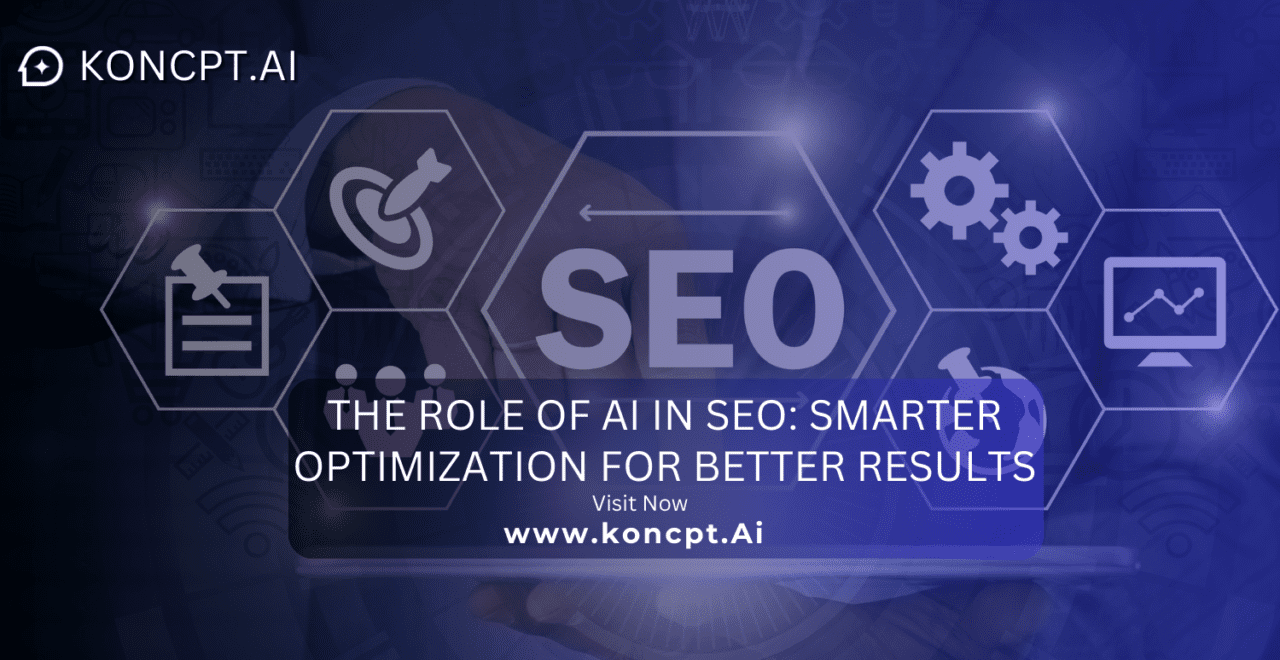The Role of AI in SEO: Smarter Optimization for Better Results
Search Engine Optimization (SEO) is the backbone of online visibility, ensuring that websites rank higher in search results and attract targeted traffic. However, traditional SEO practices often involve tedious manual processes and constant adaptation to evolving search engine algorithms. This is where artificial intelligence (AI) is making a game-changing impact. By automating tasks, analyzing data, and predicting trends, AI is enabling smarter optimization and delivering better results for businesses. Here’s how AI is revolutionizing SEO.
1. Enhanced Keyword Research
Keywords are the foundation of SEO, and AI-powered tools like SEMrush, Ahrefs, and Clearscope are transforming how businesses identify and target them. AI analyzes user search behavior, competitor strategies, and industry trends to suggest highly relevant keywords. These tools can also predict which keywords will drive the most traffic based on search intent and competition.
By leveraging AI for keyword research, businesses can develop more precise and effective content strategies that align with user needs and search engine algorithms.
2. Content Optimization
AI plays a crucial role in optimizing content for search engines. Tools like SurferSEO and MarketMuse analyze the top-ranking pages for a specific keyword and provide actionable recommendations for improving content. These insights include ideal word count, keyword density, headings, and related terms to include for better rankings.
AI also ensures content readability by suggesting improvements to sentence structure, tone, and flow, making it more engaging for users and compliant with SEO standards.
3. Predictive Analytics for SEO Trends
AI’s ability to analyze historical data and predict future trends gives businesses a competitive edge. Predictive analytics tools like BrightEdge and RankScience help forecast changes in search engine algorithms, user behavior, and keyword performance. By staying ahead of these trends, businesses can proactively adjust their SEO strategies to maintain or improve rankings.
4. Smarter Link-Building Strategies
Building high-quality backlinks is a critical aspect of SEO, but it can be challenging and time-consuming. AI simplifies this process by identifying relevant websites and opportunities for link-building. Tools like Moz and Majestic analyze backlink profiles and suggest strategies to acquire authoritative links, improving a website’s domain authority and search rankings.
5. Voice and Visual Search Optimization
With the rise of voice assistants and visual search, AI is essential for optimizing websites for these new search modalities. Tools like Google Lens and Bing Visual Search analyze images and videos for SEO optimization, while AI-driven platforms like AnswerThePublic help businesses adapt to voice search queries by identifying conversational keywords.
Optimizing for voice and visual search ensures that websites remain accessible to modern users and search engines.
6. Automated Technical SEO
AI-powered tools like Screaming Frog and DeepCrawl simplify technical SEO by automating tasks such as crawling websites for broken links, duplicate content, and site structure issues. These tools also provide recommendations to improve website speed, mobile responsiveness, and security—key factors in search engine rankings.
Automating technical SEO tasks allows businesses to focus on strategic initiatives while ensuring their websites are optimized for performance.
7. Real-Time Performance Tracking
AI enhances real-time tracking of SEO performance through advanced analytics platforms like Google Analytics 4 and HubSpot. These tools monitor metrics such as organic traffic, bounce rates, and click-through rates, offering actionable insights for improvement. AI also helps identify patterns and anomalies in data, enabling businesses to make informed decisions quickly.
Conclusion
AI is transforming SEO by making it more efficient, accurate, and predictive. From keyword research to content optimization, link-building, and technical SEO, AI streamlines processes and delivers smarter solutions for better results. Businesses that embrace AI-powered SEO tools and strategies are well-positioned to achieve higher rankings, attract quality traffic, and stay ahead of the competition.
As search engines evolve, so will AI’s capabilities, ensuring that SEO remains a powerful and adaptive tool for driving online success. For businesses looking to thrive in the digital landscape, leveraging AI in SEO is not just a trend—it’s the future.



